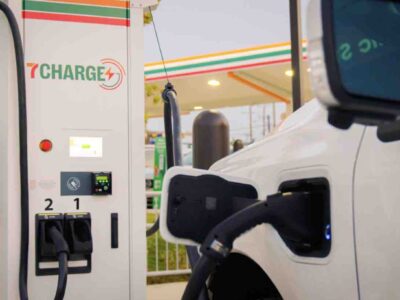(Bloomberg Businessweek) —
Greg Pilley has spent much of his adult life on green endeavors. After earning a degree in marine conservation and working in sustainable farming, in 2006 he opened Stroud Brewery, a producer of organic IPAs, lagers, and exotic varieties such as elderflower-infused pale ale. But getting eco-friendly credentials for his venture, which sits a couple hours west of London, was a huge undertaking for Pilley, who spent long nights poring over data regarding the source of raw materials and the energy consumption of his processes. “It was pretty much a six-month exercise,” he says.
A company whose green claims are vetted and certified by a trusted organization can gain a competitive edge as consumers become increasingly concerned about the environmental impact of their purchases. For small and medium-size businesses (SMEs) that struggle to find the resources, time, or skills to wade through the complex bureaucratic processes, the intensity of the process can be overwhelming, and the costs can be prohibitive. Only 11% of small businesses in the U.K. measure their carbon impact, according to a July survey by the British Chambers of Commerce.
Pilley’s goal was for his brewery to be recognized by B Corporation, whose sustainability certification is considered the global gold standard for companies that aren’t in an obvious green sector. There are more than 500 B Corp companies in the U.K., with about 41% of these having fewer than 10 employees, according to the organization.
Having successfully gained B Corp status, Pilley advises companies thinking of making their practices more climate-friendly to look to industry bodies and networking hubs for support. In the U.K. that could include manufacturing group Made in Britain’s green growth program, the Confederation of British Industry’s white paper on net-zero adaption, and the Heart of the City charity’s net-zero training course.
Even with emerging resources, it’s difficult to gauge the environmental impact of an SME, given that standard taxonomies or disclosure rules are often inappropriate for their business models. The data hurdles will only become more pressing as governments spur SMEs to make net-zero pledges. “SMEs aren’t fungible. They come in different shapes, sizes, and flavors,” says James Vaccaro, the head of sustainability consultant Re:Pattern and an adviser to policymakers. “There’s just no boxes for them to tick.”
B Corp membership comes with an annual fee, and gaining the certification sucks up valuable time, says Madeleine White, who’s in the early stages of a B Corp application for her vegan and plastic-free cosmetics brand, Juni Cosmetics Ltd. After getting the business off the ground, she was eager for outside accreditation of her product to insulate her against the increasingly common accusation of greenwashing. She says she needs to track down the exact origin of all materials and ingredients and outline the manufacturing processes. “When you work with quite a few different suppliers, like we do, it really gets very confusing and convoluted.”
Some financial institutions are coming up with tools to support small businesses. NatWest Group Plc’s accelerator program, which supports 1,400 businesses in the U.K., also helps some companies looking to achieve B Corp status. Moody’s Corp. has devised a tool that lets investors and companies gauge their environmental impact without sifting through reams of reports.
Others are turning to algorithms to help bridge the divide. Dayrize, an e-commerce platform specializing in sustainable fashion and beauty products, scores each individual item on its website. When businesses can’t provide the required information, it uses a combination of external datasets and trends observed among its roughly 450 member companies to compensate, says Chief Operating Officer Austin Simms.
Sustainable bank Triodos Bank, which supported a crowdfunded community bond for Stroud Brewery, relies increasingly on credentials like B Corp but isn’t satisfied with companies just scraping through on the minimal score, as it looks for additional data inputs. The bank creates a database of a given company’s sustainable reporting, generated during the financing application, which can then be shown to prospective clients, customers, and investors. “Lots of people will design tools and try and sell banks and businesses tools in the future—I’m slightly skeptical,” says Bevis Watts, who heads up the U.K. branch of Triodos.
Pilley doesn’t regret pursuing the B Corp membership, despite the cumbersome process. The status has helped him approach major retailers such as Waitrose, Ocado, and Whole Foods about carrying his products, he says. He also wanted a holistic score to sum up his sustainability efforts across different parts of the business. “It’s one thing just measuring and trying to do something as a marketing exercise, and it’s another doing it because you actually want to make a difference.”
Read next: A Diaper Entrepreneur’s Take on When to Seek Outside Help
To contact the author of this story:
Libby Cherry in London at ocherry2@bloomberg.net
© 2021 Bloomberg L.P.





